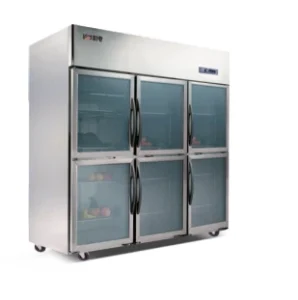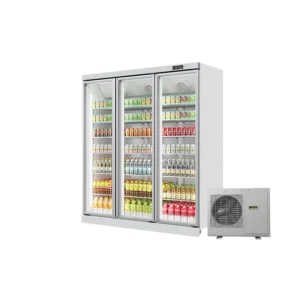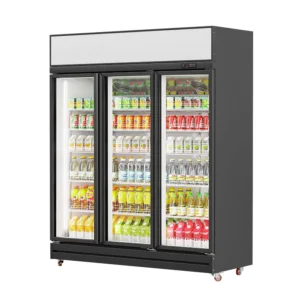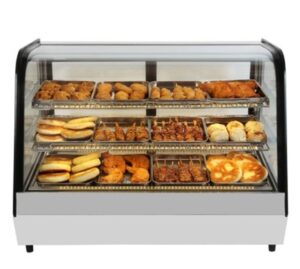Durability is a critical factor for refrigeration equipment in commercial and retail settings, impacting operational costs, compliance, and customer trust. This guide explores the essential aspects of durability analysis—from material selection to performance testing—tailored for importers, distributors, supermarkets, and small retailers seeking long-term reliability and cost efficiency.
1. Why Durability Matters in Refrigeration Equipment
✅ Reduced Replacement Costs: Durable units minimize frequent repairs or replacements.
✅ Compliance with Regulations: Meets international safety and energy standards (e.g., UL 471, EU Ecodesign).
✅ Sustainability: Longer lifespan reduces environmental impact and supports circular economy goals.
2. Key Factors Influencing Durability
A. Material Selection
- Stainless Steel & Aluminum: High corrosion resistance for harsh environments (e.g., coastal regions).
- Polyurethane Foam Insulation: Maintains thermal efficiency while resisting wear.
- Low-E Glass Doors: Minimize heat transfer and condensation, preserving structural integrity.
B. Design Innovations
- IoT-Enabled Monitoring: Detects early wear through real-time temperature and vibration tracking.
- Modular Construction: Simplifies repairs and component replacements, extending equipment life.
- Anti-Microbial Coatings: Prevent bacterial growth and material degradation.
C. Manufacturing Standards
- ISO 17025 Testing: Ensures components meet rigorous durability benchmarks.
- MEPS Compliance: Guarantees energy efficiency and mechanical resilience in markets like Australia and Asia.
3. Durability Testing Methods
| Test Type | Purpose | Industry Applications |
|---|---|---|
| Accelerated Aging | Simulates years of use in weeks | Validates lifespan claims. |
| Thermal Cycling | Assesses material stability under temperature fluctuations | Critical for pharmaceutical storage. |
| Vibration Testing | Evaluates structural integrity during transport | Ensures resilience for global logistics. |
4. Regional Durability Requirements
- North America: UL 471 certification for electrical and mechanical safety.
- EU: EN 60335-2-89 compliance for refrigeration appliances.
- Asia-Pacific: CCC (China) and PSE (Japan) certifications for corrosion-resistant materials.
5. Case Studies: Durable Equipment in Action
- GENMA Pneumatic Unloaders: Utilizes adaptive suction technology and wear-resistant materials for alumina handling, reducing maintenance by 30%.
- Carrier OptimaLine™: Combines R290 refrigerant with stainless steel components for 12+ year lifespans in supermarkets.
6. Maintenance Strategies to Enhance Durability
- Routine Inspections: Check seals, hinges, and compressors every 3–6 months.
- Predictive Maintenance: Use IoT data to schedule repairs before failures occur.
- Proper Cleaning: Prevent microbial buildup that accelerates material decay.
Why Choose Durable Refrigeration Equipment?
For importers and retailers, investing in durable units ensures:
✅ Lower Total Cost of Ownership: Energy-efficient models save $500+ annually.
✅ Market Flexibility: Compliance with global standards opens cross-border opportunities.
✅ Customer Confidence: Reliable temperature control protects perishable goods.



